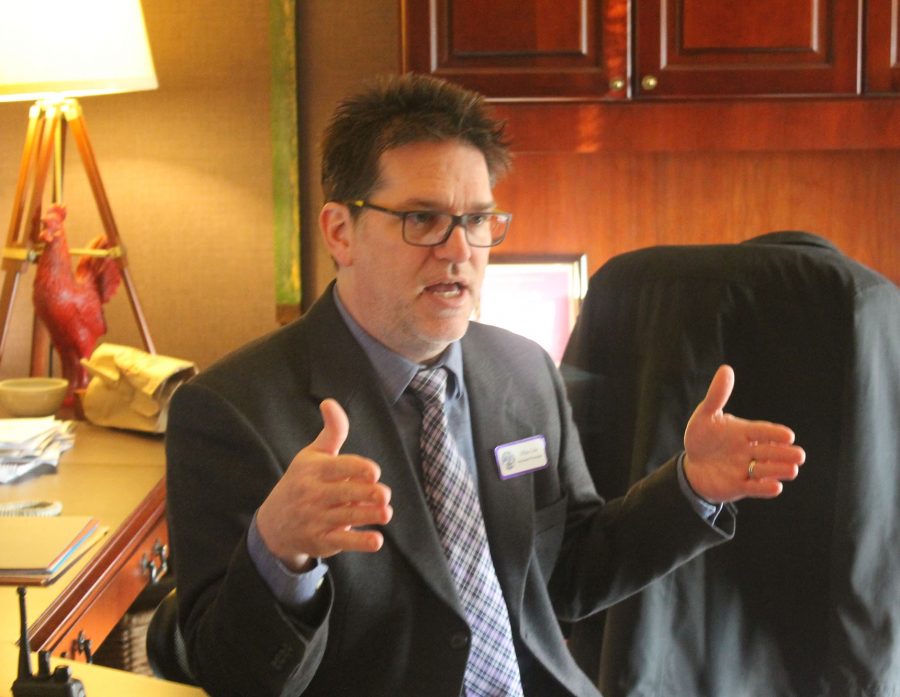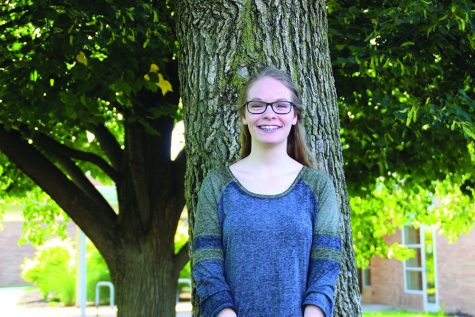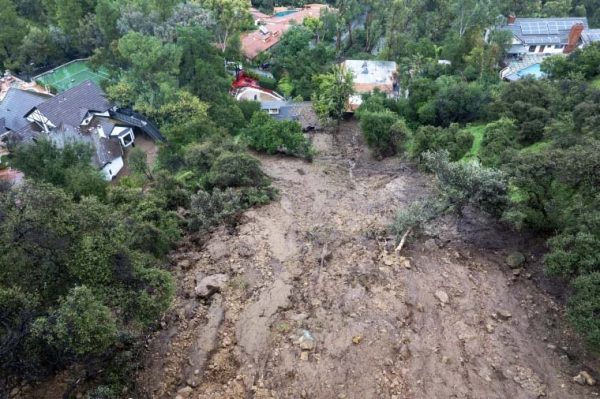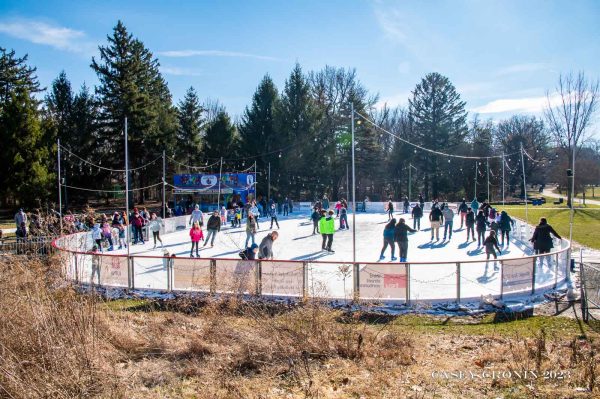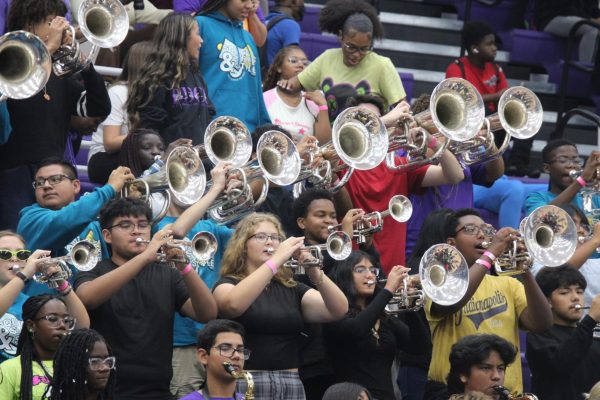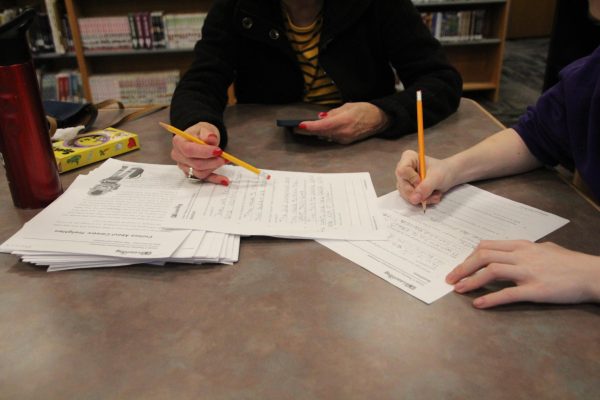A roadblock
The cause, effect, and solution to Ben Davis’ wifi problem
Assistant principal Mike Lile discusses the added traffic that created issues with our township’s internet connectivity.
February 8, 2017
Rarely do we go a school day without taking advantage of Ben Davis’ Bring Your Own Device Policy, but as of last week, many students and staff are having to cope without the wifi network that plays a major factor into making the BYOD policy possible.
At the end of January, WIDA testing began at our high school. WIDA is a diagnostic test given to English learners to see where they are at and what it is that they need to learn next. It’s similar to ISTEP and ECA testing in that it’s a state mandated test; Ben Davis HS has a window of when the testing must start and end. In the weeks prior to the testing, many Impact periods ran stress-tests to see if our school’s technology could handle this testing. In order to make it possible for WIDA testing to be successful, our administrative staff made the decision to limit the use of the WTGuest network, the wifi that both students and staff sign into on their smartphones, iPads, Chromebooks, and other non-school district owned devices.
“I likened it to the straw that broke the camel’s back,” assistant principal Michal Lile said. “When we started the WIDA testing, we started maxing out our firewall. You would noticed it in classrooms where computers would be super slow- this was all about that traffic that was flowing.”
The immediate reaction to situation was frustration from students and staff alike. In order to currently access the WTGuest network, students need to be given a password from the teachers that only lasts for one class period before changing to a new password for the next class period. Teachers are also told to only give out the passwords for academic purposes.
“Students were not pleased at first, and I think that has to do with the fact that we didn’t share information with them right away,” Lile said. “I’ll take that as part of being on me. I recognized that students were bothered by it. We wanted to get information out to students, and that was the announcement that Principal Squire made to explain to students what had happened. Since that announcement, my conversation with students have been different; I haven’t heard as many complaints, certainly the same groaning, but I think that everyone understands that I’m groaning about it. I’m essential the guy that’s sort of responsible for it, and I don’t like it either. My sense is that students now understand what we’re doing and why we need to do it.”
Ben Davis High School is not the only school being affected; our campus also includes the Ben Davis Ninth Grade Center, Chapel Hill 7th and 8th Grade Center and Chapel Wood Elementary. These four schools’ traffic flow together. Lile offered an analogy to make intangibleness of wifi and networks clearer.
“All of our system traffic on the internet is going down a highway,” Lile said. “That highway has a width. It has a number of lanes, and we would call that bandwidth. All of those schools’ traffic go down the same highway and go through the same firewall. That firewall protects our system from external intruders, hacking and all of those kind of things. The ultimate solution will be to get a new firewall. That new firewall is ordered, and it’s on the way. Once our tech people can install that firewall, we will have a better flow of traffic.”
As a solution is in the works to restore our BYOD policy back to normal, learning has not stopped by any means. Teachers now have to pull up that period’s password to the wifi for smartphone use, but using devices in the classroom can still be possible, even if it is for academic-purposes only. Classes that require computers haven’t been affected because wired computers use a wired network rather than the WTGuest wifi.
“From my perspective, we disrupted very little of the learning that goes on in the building,” Lile said. “WTGuest was the easiest and most logical thing to knock out because the computers in the classroom- clearly you’re using those for academic purposes. We can’t take out the photo lab. We can’t take out the journalism lab because your curriculum lives and dies on being able to use that computer. The big difference right now is that students and myself aren’t able to be on [WTGuest] and do their own non-academic activities.”
As for the future, problems such as the one we’re currently experiencing may happen again as smartphones have even more of an affect on our day to day lives. As a country, the data usage among Americans have doubled between the years 2014 and 2015 according to the Cellular Telephone Industries Association (CTIA), and this can be seen at our high school level as well.
“I think we always have to be open to whatever is happening- we live in a whole new world in terms of hacking or even the amount of data a person uses,” Lile said. “When you think about the data that you’re using before and after you started streaming videos, it has increased over the years. You’re trying to keep your system a step ahead of the amount of usage that is going on. I won’t be surprised at all if we have other things like this from time to time in the future, but we won’t know. The cellphone has had a dramatic impact on how each of us interacts with data- how we use it, when we use it and what we use it for, and so I think it’s fascinating.”
As of now, there isn’t a definite date for when our campus’ guest network will be restore, but as WIDA testing ends February 24, students and staff can remain supportive in our school’s efforts as they work towards the solution to the wifi situation and being prepared for whatever may happen in the future.
“I do appreciate students frustration and their patience with us as we get through this,” Lile said. “It’s certainly not something we entered into lightly; it’s not something we wanted to do. It was the best solution in a difficult position. I appreciate students patience as we work to get it back to full capacity.”


